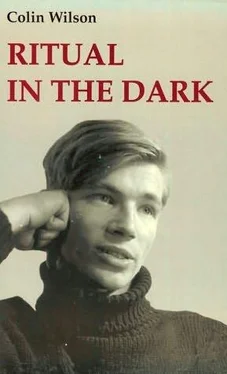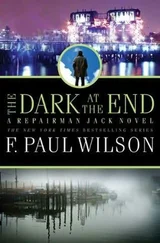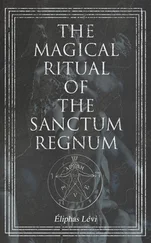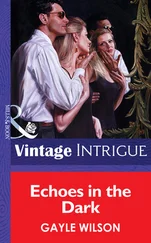Colin Wilson - Ritual in the Dark
Здесь есть возможность читать онлайн «Colin Wilson - Ritual in the Dark» весь текст электронной книги совершенно бесплатно (целиком полную версию без сокращений). В некоторых случаях можно слушать аудио, скачать через торрент в формате fb2 и присутствует краткое содержание. Жанр: Триллер, на английском языке. Описание произведения, (предисловие) а так же отзывы посетителей доступны на портале библиотеки ЛибКат.
- Название:Ritual in the Dark
- Автор:
- Жанр:
- Год:неизвестен
- ISBN:нет данных
- Рейтинг книги:4 / 5. Голосов: 1
-
Избранное:Добавить в избранное
- Отзывы:
-
Ваша оценка:
- 80
- 1
- 2
- 3
- 4
- 5
Ritual in the Dark: краткое содержание, описание и аннотация
Предлагаем к чтению аннотацию, описание, краткое содержание или предисловие (зависит от того, что написал сам автор книги «Ritual in the Dark»). Если вы не нашли необходимую информацию о книге — напишите в комментариях, мы постараемся отыскать её.
Ritual in the Dark — читать онлайн бесплатно полную книгу (весь текст) целиком
Ниже представлен текст книги, разбитый по страницам. Система сохранения места последней прочитанной страницы, позволяет с удобством читать онлайн бесплатно книгу «Ritual in the Dark», без необходимости каждый раз заново искать на чём Вы остановились. Поставьте закладку, и сможете в любой момент перейти на страницу, на которой закончили чтение.
Интервал:
Закладка:
He's pulling your leg.
Jimmy smiled, broadly and candidly:
Oh yeah? Well, it's still a good reason. But seriously, you really writing about a sex killer?
Yes.
Cal leaned forward.
Do you know any?
Certainly, Sorme said. Several. Me and Austin, to begin with. Perhaps you and Jimmy. I don't know.
He's right, Jimmy said unexpectedly. He's got you there, Cal. You don't need to know one. It could be anybody.
Is that what you're gettin' at? Cal asked.
Suppressing a strong desire to get up and leave, Sorme said:
No. Not really.
What, then?
He decided to make the best of it; after a moment's thought, he said:
I want to isolate the modern sense of dispossession. The sense of being left in the cold. Of not having enough of life. Do you know what I mean?
Do we! Cal said.
Jimmy said excitedly: Sure, I know what you mean. Like a guy I knew in S.F., spent most of his life in reformatories and gaols, and you couldn't hold him still. His favourite diversion was landing his girl friends with babies. That way he felt he was making the best of it. That boy wanted to eat and drink his freedom… anything for kicks; he had to keep moving, doing things, drinking, smoking tea, laying sweeties. That boy wanted a past to look back on next time he landed in gaol.
He turned to Nunne, saying:
Didj'ever read Thomas Wolfe? There was a dispossessed man for you… 'Scuse me, man, I just gotta go to the can. Where they keep it in this place?
Nunne directed him; they watched the two of them crossing the room together, talking excitedly, attracting attention from most other diners in the room. Nunne said:
What do you think of them?
They tire me out. I'd like to get home.
Really? You're being very antisocial today. And they like you. I can tell.
I like them. But they don't know how to make conversation. There's no attempt to get in tune. They just fire questions and comments at you like a machine-gun. And they seem to imagine that it's all getting them somewhere interesting. I couldn't resist talking about dispossession. They're about the worst examples I've ever seen.
You're being a little premature, you know. Cal has some rather interesting views on mysticism. He became a Mohammedan a few years ago… By the way, are you serious about writing this novel?
No. I invented it on the spur of the moment. You can't talk seriously about your work like that, at five seconds' notice.
Nunne said reprovingly:
You're not sufficiently interested in people, you know, Gerard. I've noticed it in you before.
Maybe, Sorme said noncommittally. The Americans were returning, Jimmy walking with the exaggerated ape-slouch, and still talking and gesturing. As soon as Jimmy sat down, he asked:
D'you ever try Yoga?
Not seriously, Sorme said.
Pity. You ought to try that. Cal used to practise it — the soofi method, it was called. I used to know a guy here in London who did it too… boy, he was really whacky, used to shoot himself full of coke, then sit like a screwball on his can for days.
Sorme began to scrape at the label of the empty wine bottle with his fingernail, wondering how to excuse himself quickly. He was feeling the beginning of a mental exhaustion that interfered with his digestion. Before he could invent a reason for leaving, he caught a name, and looked up quickly:
Did you say Glasp?
Yeah. You know him?
Oliver Glasp, the painter?
Jimmy said: I dunno whether this guy painted, and I can't remember his first name. But he was a real screwball.
It could be the same one, Sorme said. It's an unusual name.
Could be. This was five years ago. He was a bit of a pervert, too.
Was he? How?
Oh, he had a thing about little girls… always talking about them. We all reckoned he'd finish up in stir.
Could it be Oliver? Sorme asked Nunne.
I doubt it. By the way, Gerard, you ought to go soon if you're supposed to be taking a phone call at half past two.
Sorme looked at him with gratitude. He said:
Yes, I suppose I ought. I'm sorry to have to leave.
Let's meet again afterwards, Jimmy said. I'd like to talk some more about this dispossession idea.
I can't make it today, I'm afraid… but Austin could arrange it easily…
To his surprise, they both stood up and shook hands with polite formality when he left. He hurried out into Greek Street with a sense of relief. It had begun to rain.
He walked into the rain, his coat collar turned up, oblivious of the people who hurried past him on the narrow pavements. A Negro woman tried to accost him at the junction of Shaftesbury Avenue; he smiled vaguely at her and walked on. Something worried him; he wished Nunne was still there. On a sudden impulse, he turned into a phone box. The Hungarian priest answered the phone. Sorme gave his name and asked if Father Carruthers was free. A few minutes later, the priest returned, and said that Father Carruthers would be free until four o'clock. Sorme looked at his watch. It was after three. He said:
Thank you very much. I'll come over now.
On the bus, travelling down Holborn, he wondered what he wanted to say to the priest. It was some compulsion to unravel a knot; but his ideas about what he was unravelling were uncertain. He was balanced on the edge of an excitement that refused to be denned.
The Hungarian priest took him up, and left him at the end of the corridor. Father Carruthers was sitting in front of the fire, wearing a dressing-gown over pyjamas. Sorme was pleased by the warmth of his grip as he shook hands: he was secretly afraid of boring the old man.
I'm glad you came, Gerard. Sit down.
When Sorme was seated, and before he could speak further, the priest leaned forward, saying:
Did Stein ask you any questions yesterday?
Yes. We went and had a cup of coffee…
Who suggested that?
He did.
The priest looked grave.
And he asked you about Austin?
Why, yes. How did you know?
The priest ignored him. He was staring past Sorme's head out of the window. Something in his face kept Sorme silent; it was an expression he would never have associated with the priest, a mixture of power and concentration with detached regret, a summary. The silence lengthened. Glancing cautiously at his wristwatch, Sorme noticed it was almost twenty to four. The priest looked at him; he seemed to have come to a decision. He said quietly:
I think you are a reliable person, aren't you, Gerard?
I hope so, father.
The priest's tone was clear and businesslike.
In my profession, I am often obliged to make decisions that contravene the law — or, rather, ignore it. I have to work upon the assumption that individual souls are of value. The law judges a man by what he has done: I have to judge him by what he is. Do you understand?
Sorme nodded.
What I am going to tell you now will place us both in that position…
He was silent: Sorme waited, with a foreboding. He anticipated what the priest was going to say and prepared himself for it.
On Thursday night, Franz Stein received information from the Hamburg police that gave him reason to suppose that Austin might be the Whitechapel murderer.
He stopped. Sorme sat there, surprised by his own calm. He asked finally:
Will they arrest him?
Not yet.
Why?
They have no evidence. It would be very difficult to find evidence at this stage. He is being watched all the time.
And is he… the killer?
He could be.
The questions piled up in him, obstructing one another like a cumulative accident on an arterial highway; he felt them escaping in the confusion. The priest watched him without speaking. Sorme said:
He's not insane. I'm certain he's not insane.
I don't know.
Читать дальшеИнтервал:
Закладка:
Похожие книги на «Ritual in the Dark»
Представляем Вашему вниманию похожие книги на «Ritual in the Dark» списком для выбора. Мы отобрали схожую по названию и смыслу литературу в надежде предоставить читателям больше вариантов отыскать новые, интересные, ещё непрочитанные произведения.
Обсуждение, отзывы о книге «Ritual in the Dark» и просто собственные мнения читателей. Оставьте ваши комментарии, напишите, что Вы думаете о произведении, его смысле или главных героях. Укажите что конкретно понравилось, а что нет, и почему Вы так считаете.












